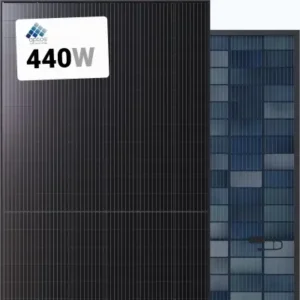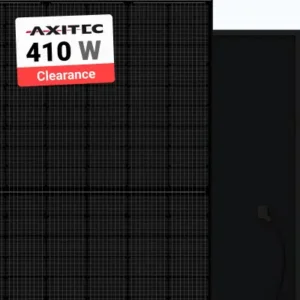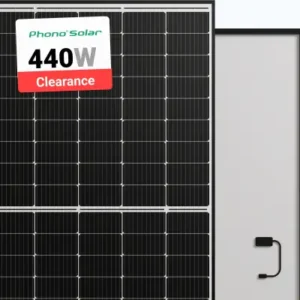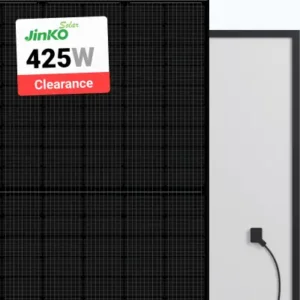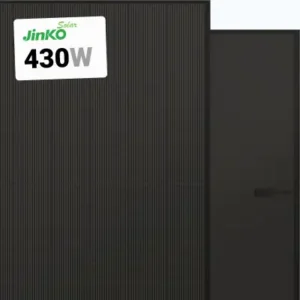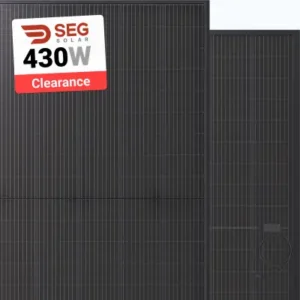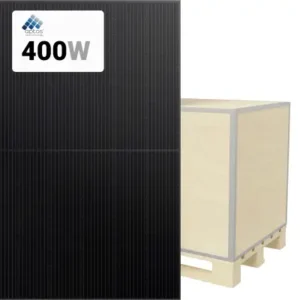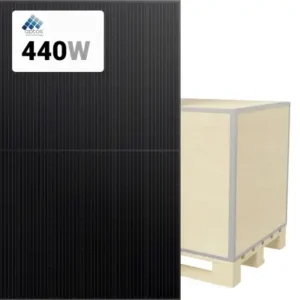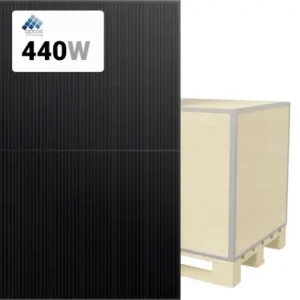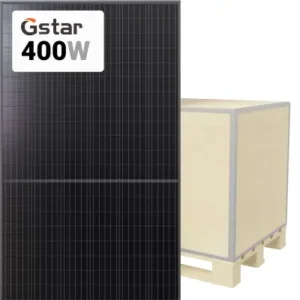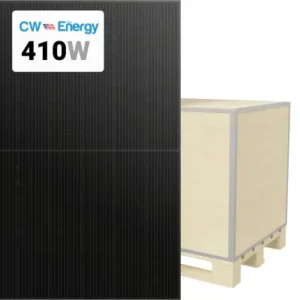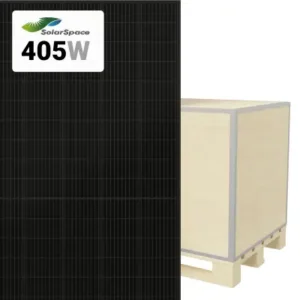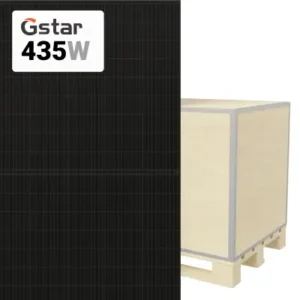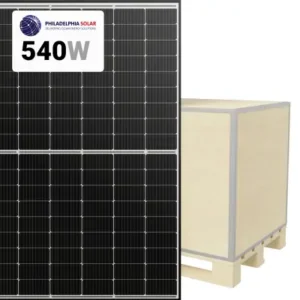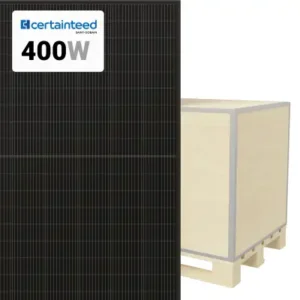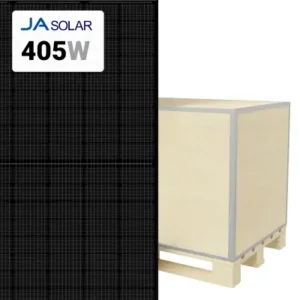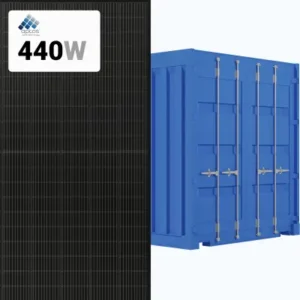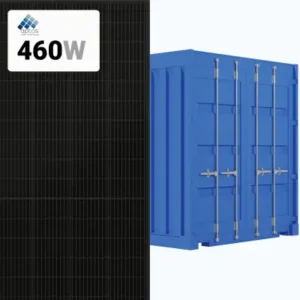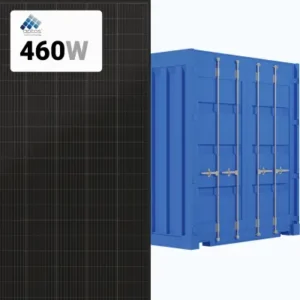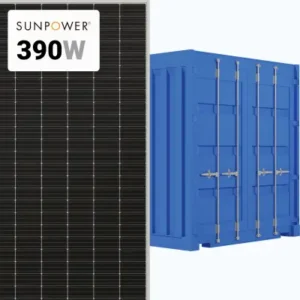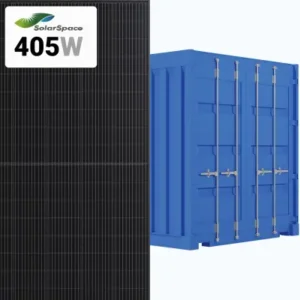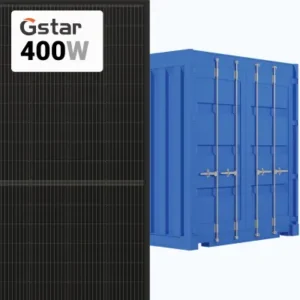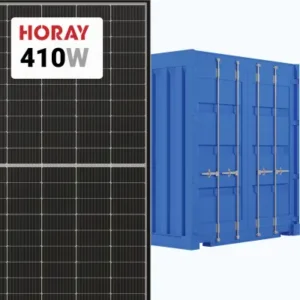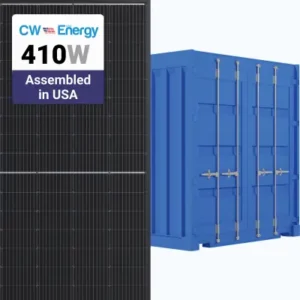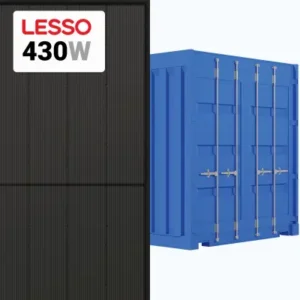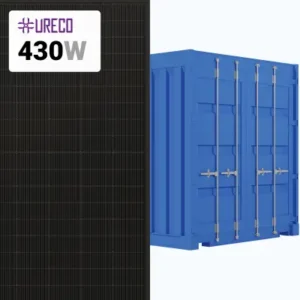While the largest solar manufacturers are from China, American brands are also capable of producing powerful, high quality panels. One of them is Aptos Solar: a relatively young company that already shows that it can compete with other more established names on the market. Their panels are modern, sturdy and relatively inexpensive. Let’s look at what they make.
About Aptos Company
Aptos Solar is an American manufacturer with headquarters in Silicon Valley, California. It has been on the solar market for over 10 years already. Aptos engineers have patented a Dual Nano Absorber (DNA) technology for their solar cells which combines in itself the best from PERC and bifacial cells. Aptos DNA solar cell has intrinsic layers of negatively charged atoms which raise the efficiency and tolerance to high temperatures.
Aptos solar panels for sale
Quality And Performance
The panels from the American manufacturer undergo a series of quality checks before they are shipped out. This includes third party testing under harsh weather conditions. Panels have to withstand thermal cycling, freezing at high humidity and damp heat testings. That’s why the failure rate of Aptos solar panels that reach their customers is less than 0.01%.
When it comes to performance, most Aptos panels have over 20% efficiency, which is higher than average numbers on the market. There are bifacial panels in the product line which allows to harvest up to 30% more energy for the same space. Aptos modules range in output from 360W to 440W which makes them great both for home and business installations.
Warranty And Service
The American manufacturer provides a 25 year product warranty and a 30 years linear performance warranty for their panels. These are among the best numbers in the industry. Aptos solar panel loses around 0.54% of power annually and after 25 years in service it retains over 85%. In 30 years it will still have over 82% of its initial power output.
What to look for when choosing a Aptos solar panel
When choosing a panel, you should take into account your own circumstances: your energy needs, available space and weather in your area.
- Most panels for residential systems have 60 or 120 cells. Both are the same size: 120 and 144 cell panels use half-cut cell design. 72 or 144 cell panels are higher in output, but larger, which often makes it harder to fit them on the standard residential roof. Bifacial panels that Aptos Solar offers can be a good choice if you want to squeeze as much energy as possible from the available space. The bonus in production, that you are going to receive from the rear side, depends on the reflectivity of the surface behind panels.
- Panels vary in their abilities to perform in low-light conditions, extreme weather, at high temperatures and how they fight shading. Aptos Solar panels show improved performance when it’s hot, so they can be a good choice for areas like Arizona or Texas where summers are rough. They also have great wind and snow resilience so they will be able to survive tornadoes and hurricanes, which can be problematic in southern states — Florida, for example.
FAQ
Q.: How good are Aptos Solar panels at withstanding tornadoes and hurricanes?
A.: Modules are tested for wind loads up to 6,200 Pa which means they can handle 210 mph wind. A typical tornado has winds of 110 mph or less.
Q.: Can I install solar panels by myself?
A.: In the US laws regarding solar panels installation vary from state to state. Sometimes local officials specifically demand the system to be built by a certified installer. Besides, in most states you’ll have to get a permit to put panels on your roof, which can be hard to do when you aren’t familiar with the procedure. The installer usually handles the permitting process all by himself.
Q.: What do I need besides solar panels?
A.: That depends on the type of system that you want. Standard grid-tie system includes PV modules and an inverter. Off-grid systems which include RV and boat systems consist of panels, a battery, a charge controller and an inverter, though not always. Hybrid systems usually have the same components, but you need a special kind of inverter. Sometimes these hybrid inverters already have built-in energy storage.
Articles to help you properly install and clean JA solar panels
Solar Panels Cleaning
Regular cleaning of solar panels is essential for maintaining their efficiency and maximizing energy production. This article covers the importance of keeping your solar panels clean, effective cleaning methods, recommended tools, and best practices to ensure your solar panels operate at peak performance.
Read Full – Solar Panels Cleaning
Solar Panel Snow Removal
Snow accumulation on solar panels can significantly reduce their efficiency. This article provides a detailed guide on safely removing snow from your solar panels, the tools and techniques you can use, and tips to prevent damage while ensuring your solar panels are clear and functional during winter months.
Read Full – Solar Panel Snow Removal
Solar Panel Cleaning Cost
Understanding the cost of professional solar panel cleaning services can help you decide whether to hire experts or do it yourself. This article breaks down the factors affecting cleaning costs, average price ranges, and the benefits of professional cleaning versus DIY methods, helping you make an informed decision.
Read Full – Solar Panel Cleaning Cost
How to Install Solar Panels
Installing solar panels can be a rewarding but complex process. This comprehensive guide walks you through the steps of installing solar panels, from planning and securing permits to mounting and wiring the panels. Learn about the necessary tools, safety precautions, and tips for a successful installation.
Read Full – How to Install Solar Panels
Installing Solar Panels on Roof
Roof-mounted solar panels are a popular choice for homeowners looking to harness solar energy. This article focuses on the specifics of installing solar panels on your roof, including the types of roofing materials, mounting systems, structural considerations, and step-by-step instructions to ensure a secure and efficient installation.Read Full – Installing Solar Panels on Roof
